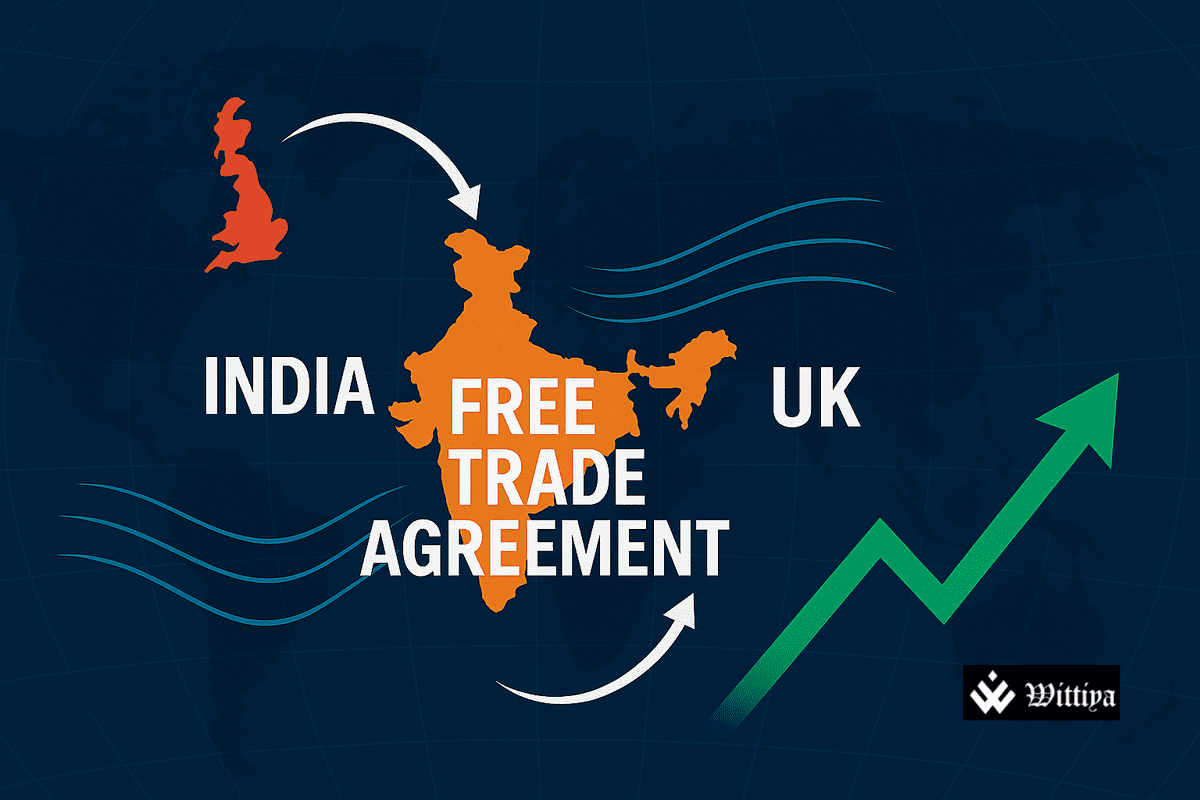India and the United Kingdom have concluded a Free Trade Agreement (FTA) after prolonged negotiations, signifying renewed momentum in global trade despite growing protectionist sentiments. The agreement reflects a blend of political compromise and economic ambition, with both nations aiming to benefit from expanded trade, GDP growth, and lower consumer prices.
India and the United Kingdom have officially signed a comprehensive Free Trade Agreement (FTA) following nearly three years of intensive negotiations. This deal, finalised through high-level political cooperation, highlights the ongoing strength of globalisation even amid rising protectionism and geopolitical uncertainties.
The agreement was concluded under the leadership of Indian Prime Minister Narendra Modi and UK Prime Minister Keir Starmer. It signifies a vital step toward deeper economic integration, improved bilateral relations, and enhanced trade flows between the two nations.
India, one of the world’s fastest-growing economies, and the UK, a major global financial hub, have aimed to mutually benefit from this partnership. While the UK expects GDP growth and reduced consumer prices, India has made certain concessions, such as easing its stance on labour migration, in order to ensure the deal’s finalisation.
According to officials, the FTA will cover sectors including goods, services, and investments, offering Indian exporters better access to the UK market and vice versa. It is also expected to improve job opportunities and bolster supply chain connectivity between both countries.
This agreement is seen as a significant signal that global economic cooperation is not only continuing but evolving. Canada, too, is exploring similar trade partnerships with Indonesia and ASEAN, while India is also in talks with the European Union for another landmark FTA.
The India-UK deal reflects the enduring relevance of international cooperation, even in a world where tariff wars and economic nationalism often dominate headlines.



